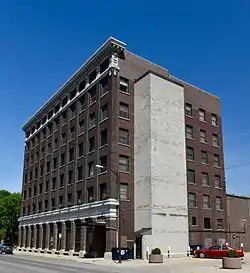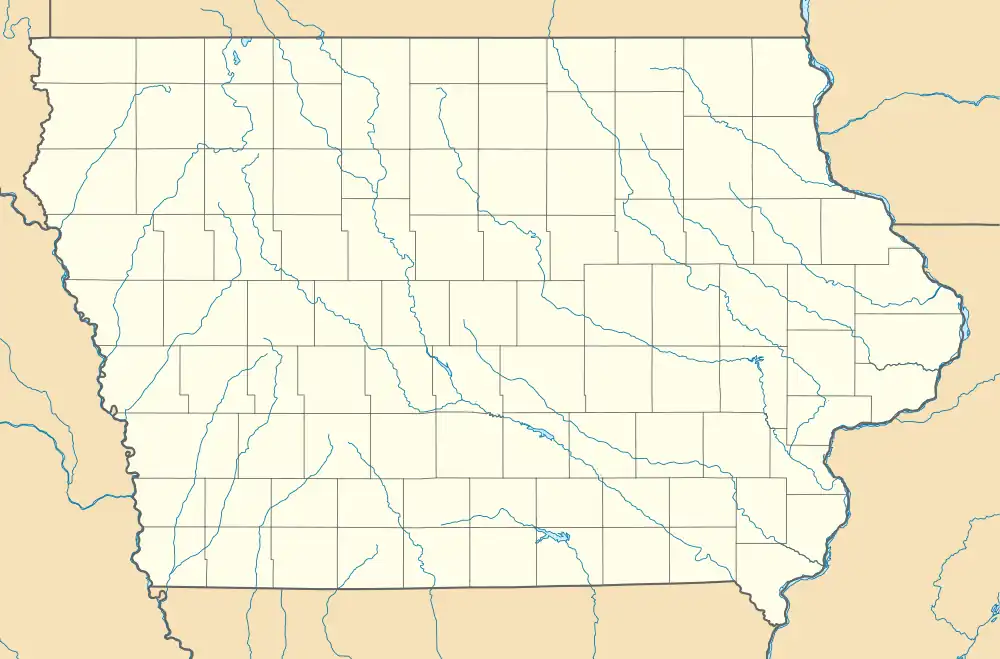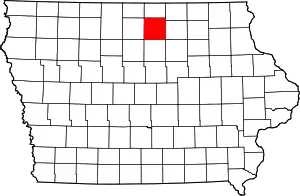Mason City Downtown Historic District
The Mason City Downtown Historic District is a nationally recognized historic district located in Mason City, Iowa, United States. It was listed on the National Register of Historic Places in 2005.[1] At the time of its nomination it contained 93 resources, which included 63 contributing buildings, one contributing site, four objects, 22 non-contributing buildings, and three non-contributing objects.[2] Platted in 1855, Mason City is a commercial and industrial center for north central Iowa. It was also a railroad center, but the tracks bypassed the central business district in order to serve the industries located on the north side of town and the wholesale enterprises on the south side. Central Park, a public square, was part of the city's original plat and is the contributing site.
Mason City Downtown Historic District | |
 | |
  | |
| Location | Roughly bounded by N. 46th St., Georgia Ave., Washington Ave., and S. 2nd St., Mason City, Iowa |
|---|---|
| Coordinates | 43°09′09.7″N 93°12′03.9″W |
| Area | 49.75 acres (20.13 ha) |
| Architect | Frank Lloyd Wright |
| Architectural style | Late Victorian Late 19th & early 20th century Revivals |
| NRHP reference No. | 05000956[1] |
| Added to NRHP | September 8, 2005 |
Most of the buildings in the downtown area were builder-contractor designed. Among the builders were Geo. P. Petersen & Son and M.M. Moen Company (later Davey & Moen). There are also several examples of architect designed buildings. They include Parker's Opera House (1883) by William Foster, the former Mason City Public Library (1904) by Patton & Miller, the Park Inn Hotel (1909) and the City National Bank (1910) by Frank Lloyd Wright, First National Bank (1911) by Liebbe, Nourse & Rasmussen, the MBA Building (1917) by Bell & Bentley, the Hanford Hotel (1921) by Proudfoot, Bird & Rawson, the YMCA (1926) by Tyrie and Chapman, and the former First Church of Christ, Scientist (1928) by Clyde W. Smith. There are also buildings designed by prominent local architects E.R. Bogardus and Karl Waggoner.[2] An apartment building, The Kirk (1903), is also individually listed on the National Register.
References
- "National Register Information System". National Register of Historic Places. National Park Service. January 23, 2007.
- Alexa McDowell. "Mason City Downtown Historic District". National Park Service. Retrieved April 5, 2016. with photos
External links
![]() Media related to Mason City Downtown Historic District at Wikimedia Commons
Media related to Mason City Downtown Historic District at Wikimedia Commons
